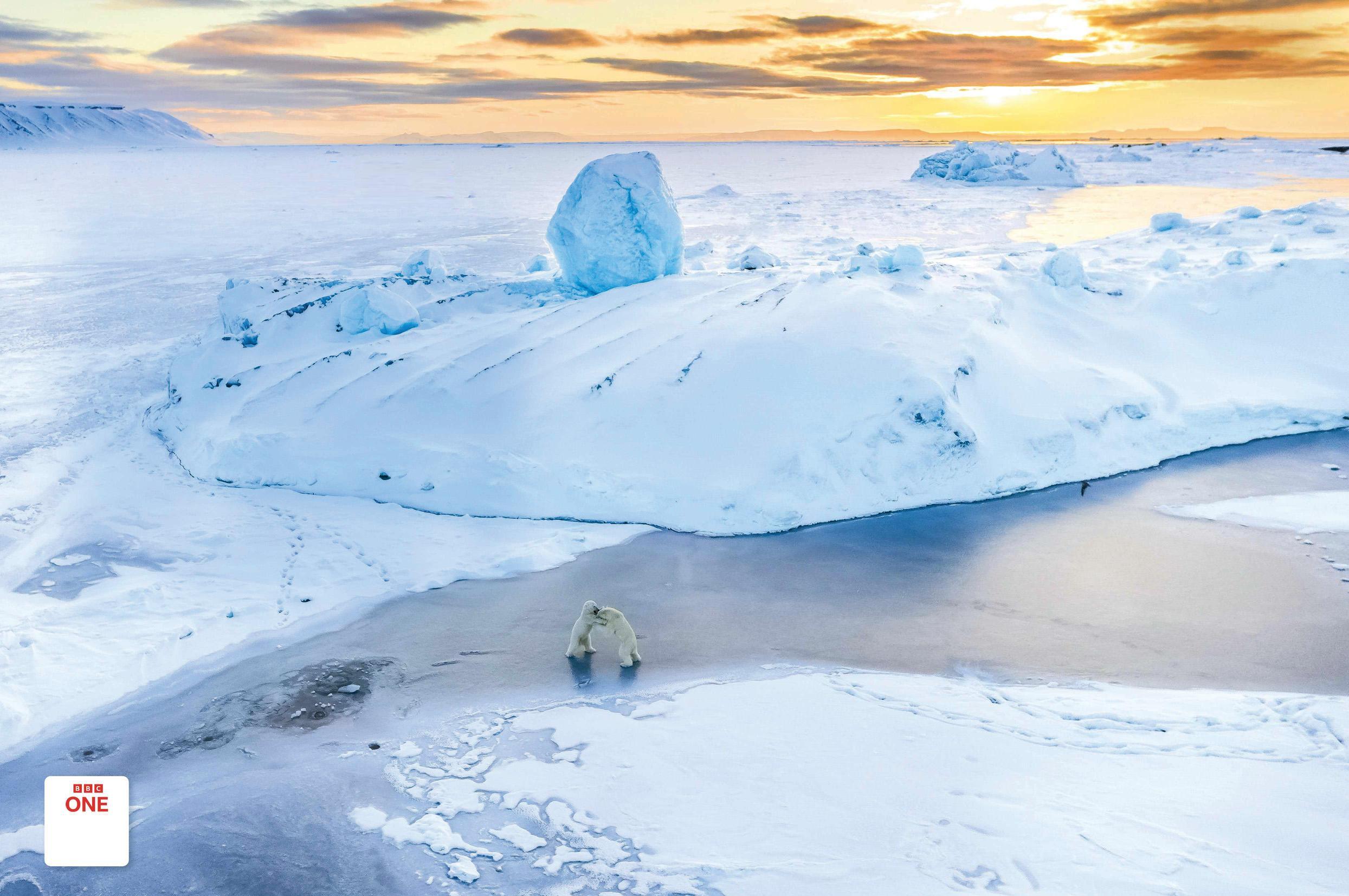Try GOLD - Free
Return to the FROZEN PLANET
BBC Wildlife
|October 2022
Over a decade since Frozen Planet first aired on the BBC, the series is back, offering extraordinary new footage of life in the most extreme environments on Earth

IT TOOK OVER FOUR YEARS TO make Frozen Planet II. Executive producer Mark Brownlow shares his highlights of filming on all seven continents and across 18 countries to create a series that tells an urgent story about the effects of climate change on our world.
Frozen Planet (2011) looked at the passing of the seasons at the two poles. How does Frozen Planet II build on what came before?
I was a huge fan of the original series, but a decade has passed since it aired and we now have a far greater understanding of our frozen habitats. A decade ago we were still debating whether climate change was caused by humans or not!

This series tells the bigger story of all of our frozen worlds – which, incredibly, cover one-fifth of our planet – at a time when they’re changing faster than ever before. So, we go to the Arctic and Antarctic, but we also climb the world’s highest peaks, dive into icy lakes and enter snowbound deserts.

We celebrate the wondrous life in these fragile ice worlds, but also land the message that they are changing rapidly on our watch, with potentially profound consequences for all of humanity. We focus on a singular narrative around climate change. It’s the story of our time.
What cast of animal stars can we look forward to?
This story is from the October 2022 edition of BBC Wildlife.
Subscribe to Magzter GOLD to access thousands of curated premium stories, and 10,000+ magazines and newspapers.
Already a subscriber? Sign In
MORE STORIES FROM BBC Wildlife

BBC Wildlife
SNAP-CHAT
Lara Jackson talks magical otters, curious rhinos and ticks in the toes
3 mins
October 2025

BBC Wildlife
What's the difference between global warming and climate change?
PEOPLE OFTEN USE THE TERMS global warming and climate change interchangeably, but they describe different concepts. Global warming refers to Earth’s increasing surface temperature.
1 min
October 2025

BBC Wildlife
THE FROZEN CONTINENT
Visit the epic landscapes of Antarctica with HX Hurtigruten Expeditions, the unique cruise line made for curious travellers
3 mins
October 2025

BBC Wildlife
Dragonfly dialogue
STARTED TALKING TO DRAGONFLIES IN India at a place where my husband and I stayed several times in the foothills of the Himalayas.
1 mins
October 2025

BBC Wildlife
What's the largest animal gathering on Earth?
PEOPLE LOVE A PARTY. BUT AS POPULOUS as our species is, the headcounts at our gatherings don't match those of other species. The Maha Kumbh Mela, a Hindu pilgrimage in Prayagraj, India, drew more than 660 million people in January 2025. But this horde - thought to be the largest in human history – pales in comparison to the groups formed by our animal relatives.
1 mins
October 2025

BBC Wildlife
Do plants have memory?
TO HAVE TRUE MEMORY AN ORGANISM requires brain cells to store experiences through the action of sophisticated neurotransmitters. Plants lacking brain cells therefore cannot be said to have that capacity for memory. However, there is evidence that some plants adapt their characteristics based on 'remembered' experiences.
2 mins
October 2025

BBC Wildlife
wild OCTOBER
7 nature encounters for the month ahead
3 mins
October 2025

BBC Wildlife
Do sharks have bones?
WHILE HUMANS HAVE A BONY skeleton, parts of our bodies - such as our noses - are made of cartilage. This soft, flexible material forms the entire skeletons of sharks and rays.
1 min
October 2025

BBC Wildlife
KATE BRADBURY
As the nights draw in, encountering bats can be a magical adventure
2 mins
October 2025

BBC Wildlife
Cool runners of the desert
The beetle that beats the heat by sprinting
1 mins
October 2025
Translate
Change font size
